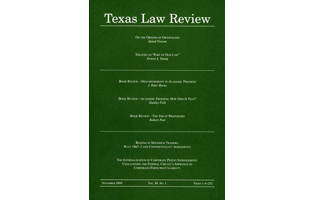
Texas Law offers an unbeatable set of student-run journals. They publish important scholarship about the legal system, and everything they print is selected or written by their student members. Involvement with a journal gives you a chance to take your writing skills to another level. It also provides a credential that employers value highly.
The law school’s journals also publish several books, including The Texas Rules of Form: The Greenbook and the Manual of Usage and Style.
-
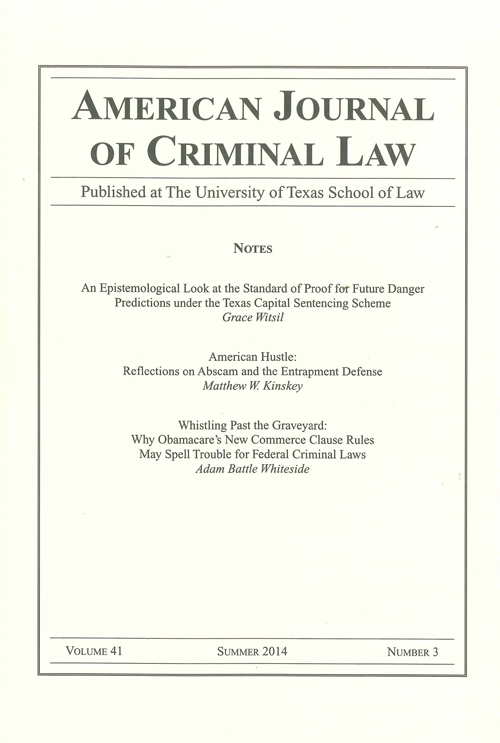
The American Journal of Criminal Law is proud to announce the availability of our most recent volume. We invite you to subscribe thereby ensuring your receipt of this fine legal periodical. The Journal continues to contribute to over four decades of articles published to promote and encourage improvement in the administration of criminal justice. The Journal has established a respected reputation as one of the nation’s longest running and most prolific legal serial publications, serving as vanguard to top student-edited legal journals devoted to criminal law. We believe you will benefit by joining our family of subscribers.
-
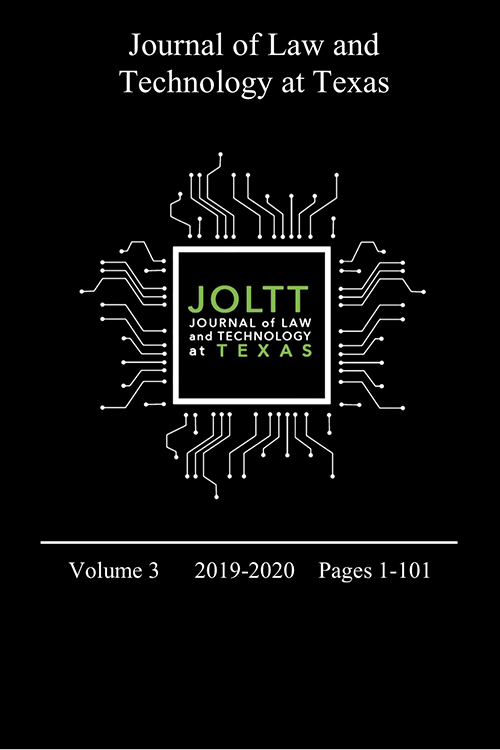
The Journal of Law and Technology at Texas (JOLTT) is dedicated to exploring the intersection of law and technology. JOLTT covers all aspects of technology law including privacy, e-commerce, internet freedom, medical technology, telecommunications, and more.
-
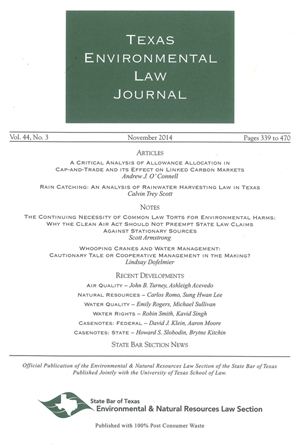
TELJ is an official publication of the Environmental and Natural Resources Law Section of the State Bar of Texas and is published jointly with students of The University of Texas School of Law. Published semiannually, the Journal offers both analysis of the present and future landscapes of environmental law as well as practical information about recent developments in case law, statutes, and regulations.
-
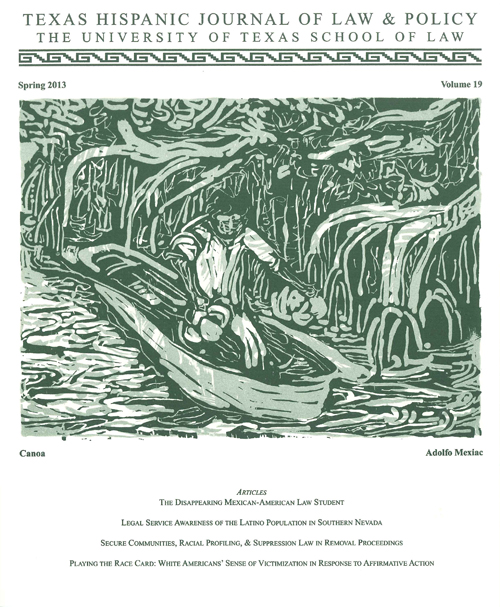
The Texas Hispanic Journal of Law & Policy is pleased to announce the opportunity to order Volumes 26 and 27 and the upcoming Volume 28:1 (2021-2022). The Journal seeks to advance legal scholarship through feature articles, essays, book reviews, and student notes relevant to a national and international audience of legal scholars and practitioners. Our latest issues have inspired the academic community to recognize the importance of Latino legal representation.
-
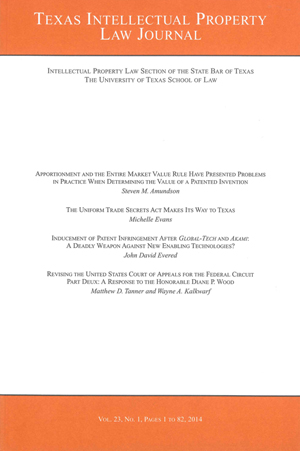
TIPLJ was started in 1991 by a group of University of Texas law students to provide intellectual property attorneys with a journal dedicated to the field. These students quickly realized that intellectual property is an increasingly important area of the law, but with few publications dedicated to the topic. TIPLJ seeks to fill this void by publishing insightful articles focusing on substantive legal issues and recent developments in the areas of patent, copyright, trademark, unfair competition, and trade secret law. The student editors also host a successful guest speaker series, an annual symposium on contemporary IP topics, and work closely with leading IP practitioners of the Intellectual Property Law Section of the State Bar of Texas.
-
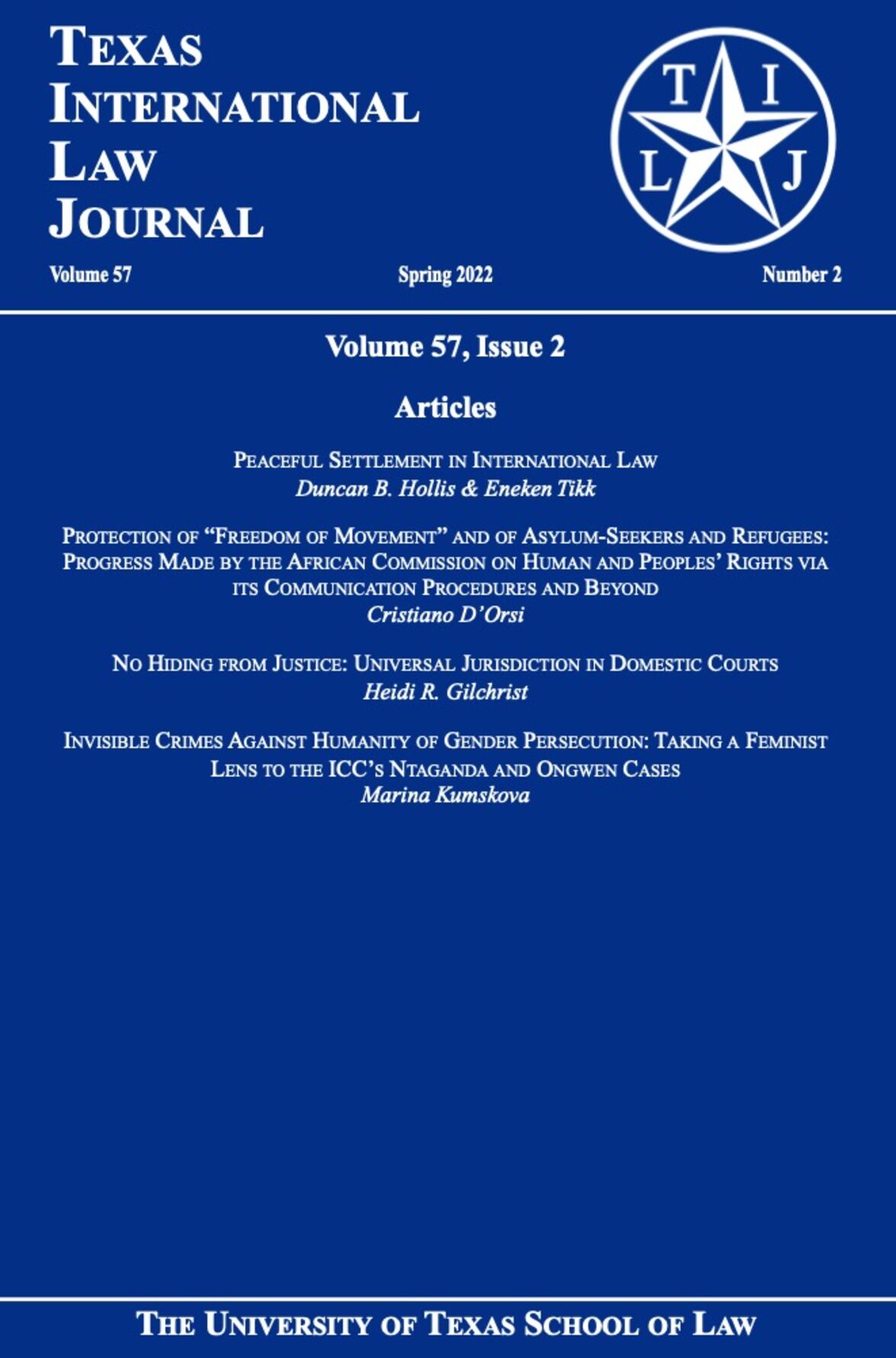
TILJ is the second-oldest journal at UT Law and the fourth-oldest student-published international law journal in the United States. TILJ strives to advance an understanding of contemporary international legal issues through timely articles, and student notes. Past contributors to TILJ include preeminent scholars and practitioners such as Dean Rusk, Robert Reich, Louis Henkin, Charles Alan Wright, and W. Page Keeton.
-
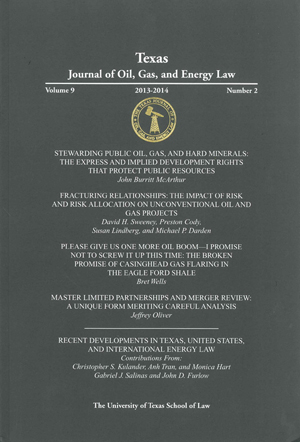
The Texas Journal of Oil, Gas, and Energy Law (TJOGEL) vision is to be a leading energy law journal, the forum of choice for energy law practitioners, professors, and students around the globe. Our focus centers on providing significant and innovative contributions to energy law and educating generations of law students for careers in the energy legal field. TJOGEL publishes two academic journal issues per year and provides our members with networking opportunities by hosting a career panel in the fall and a career fair in the spring, along with year-round happy hour and luncheon events.
-
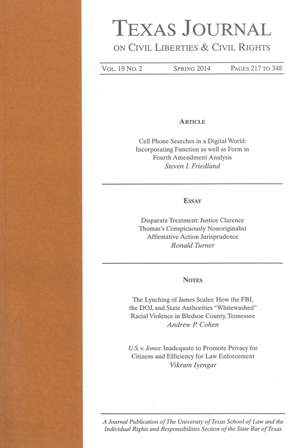
The Texas Journal on Civil Liberties & Civil Rights (TJCLCR) is a key source of information on current issues in civil liberties, civil rights, and constitutional law. The 2021-2022 academic year marks the 27th annual publication of the Texas Journal on Civil Liberties & Civil Rights, formerly the Texas Forum on Civil Liberties & Civil Rights. The Journal was formed in 1992 by a group of law students wishing to facilitate a scholarly discussion on the state of civil rights in America by publishing cutting edge articles at the intersection of law, politics, and society written by judges, lawyers, professors and fellow students.
-
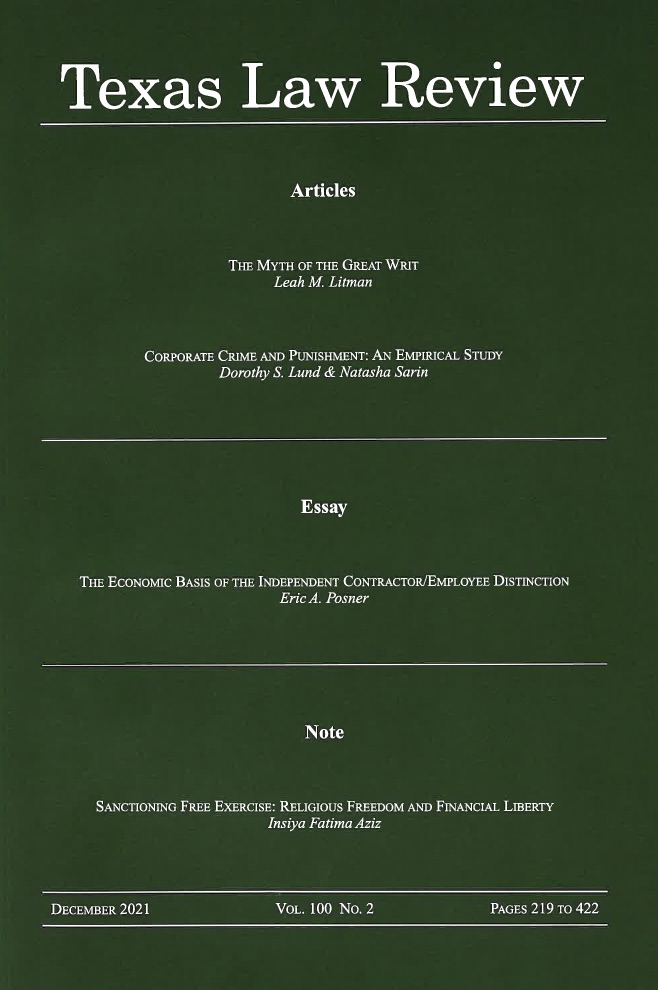
The Texas Law Review publishes seven issues throughout the year beginning each November. Each issue contains contemporary and compelling articles, essays, commentaries, and book reviews from leading legal scholars. In addition, the Review includes student notes on current legal issues. The seventh issue, published every June, traditionally contains papers submitted during annual symposia featuring particular legal topics. This combination of analysis, review, exchange, and opinion makes the Texas Law Review a valuable and increasingly cited legal resource. The Texas Law Review is established as a legal resource of particular importance to the national and international legal community.
-
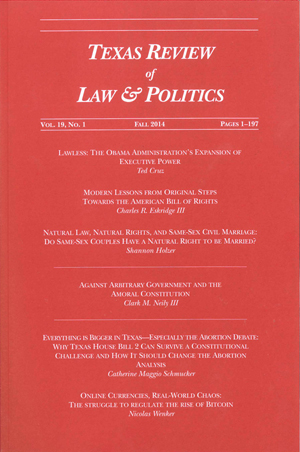
The Review, published at The University of Texas School of Law, is one of the nation’s premier conservative law journals. Its mission is to be the prime forum for the discussion and debate of provocative legal issues such as criminal justice, federalism, affirmative action, constitutional history, and religious liberties.
-
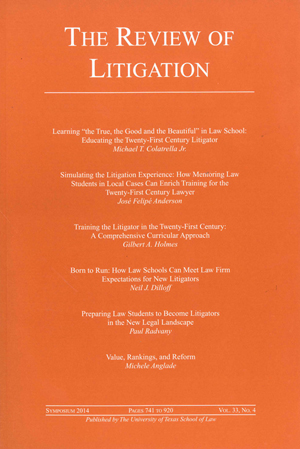
TROL seeks to advance legal scholarship through feature articles, essays, and notes relevant to a national and international audience of legal scholars and practitioners. As the first journal devoted exclusively to the topics related to trial and appellate advocacy, TROL publishes papers on evidentiary, procedural, and substantive issues. TROL addresses the needs of both academia and the practicing attorney with a pragmatic examination of current litigation issues.
*Indicates Sponsored Student Organization
